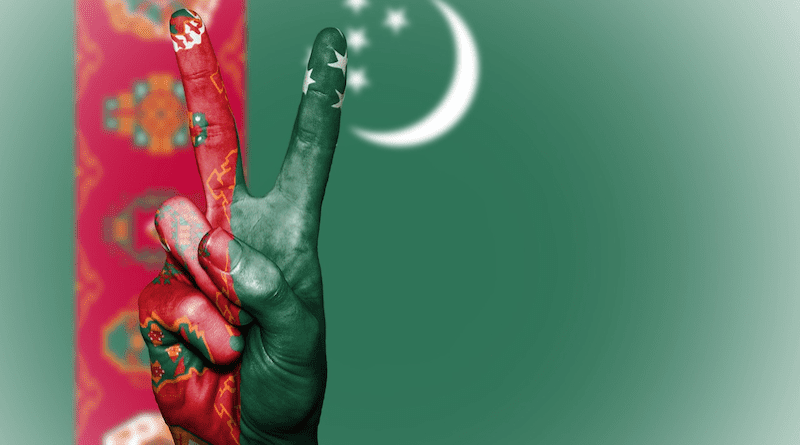Joint Report For UN Assessment Of Turkmenistan’s Women’s Rights Record – OpEd
By IPHR
At its upcoming session in Geneva, the UN Committee on the Elimination of Discrimination against Women (CEDAW) will review and assess Turkmenistan’s record on women’s rights. Turkmen Initiative for Human Rights (TIHR) and International Partnership for Human Rights (IPHR) have submitted a joint report for the review, drawing attention to serious problems of discrimination and violations of women’s rights in the country.
CEDAW will examine Turkmenistan’s sixth periodic report on its implementation of the Convention on the Elimination of All Forms of Discrimination against Women, a major international women’s rights treaty that the country acceded to in 1997. When assessing the situation in Turkmenistan, the Committee will also draw on information received from civil society organisations.
The joint TIHR-IPHR report covers the following major issues:
- Women’s representation in decision-making and executive roles remains low in Turkmenistan, with women primarily occupying leadership positions associated with social matters. The authoritarian government structure and the centralisation of power at the top also mean that women holding leadership positions have limited actual influence. For example, the lack of independence and limited authority of the Ombudsperson’s office has prevented the woman occupying this position from taking effective actions to address human rights concerns, particularly in cases involving women.
- Authorities in Turkmenistan have not only failed to combat discriminatory gender stereotypes and practices but have also actively contributed to their reinforcement. After President Serdar Berdymukhamedov assumed office in March 2022, a new campaign was launched to restrict and control women’s appearance and behaviour, purportedly in the name of preserving national traditions and values.While the campaign reached its peak in spring 2022, there have been ongoing reports of restrictive measures implemented for this purpose since then. Authorities have also arbitrarily restricted women’s right to travel such as by preventing women below 40 from obtaining and renewing their driver’s licenses and by stopping and checking women drivers due to their appearance.
- A first-ever survey on domestic violence against women, which Turkmenistan’s government carried out with support of the United Nations Population Fund (UNFPA) in 2020, offered valuable insights into the issue. However, it crucial that the government follows up on the survey by developing and implementing a comprehensive strategy to counter domestic violence. This strategy should prioritise enacting separate legislation criminalising domestic violence, conducting systematic investigations and prosecutions of reported cases of violence, and enhancing support services for victims. While the government has reported adopting a road map for the implementation of recommendations resulting from the UNFPA-supported survey in 2022-2025, it remains unclear which actions the road map includes and what progress there has been on its implementation.
- Persisting restrictions on the freedoms of expression, association, and assembly in Turkmenistan significantly impede women’s opportunities to acquire and share information, interact with others, and discuss issues of concern. Authorities consistently intimidate and harass women who criticise government policies and champion the rights of citizens, targeting inconvenient women advocates both within and outside the country. In a recent incident, independent journalist Soltan Achilova was prevented from travelling from Turkmenistan to Geneva in November 2023, clearly to hinder her from exposing the repressive human rights situation in the country. While women have increasingly held spontaneous protests against socio-economic difficulties, widespread corruption, and other serious problems affecting them and their families, authorities have been quick to suppress such expressions of discontent. Due to the repressive environment in the country, independent women’s rights NGOs cannot operate there.
- As women form the majority of the public-sector workforce, they bear the brunt of problematic practices within this sector. They are, for example, forced to take part in the annual cotton harvest, mobilised for state-organised propaganda events at the threat of repercussions and required to contribute significant portions of their salaries to help cover various costs associated with the cotton harvest, mass events, or other state initiatives.
More information on these issues can be found in the joint TIHR-IPHR report, which can be downloaded here
Following its review, CEDAW will issue its conclusions and recommendations on the situation in Turkmenistan.

